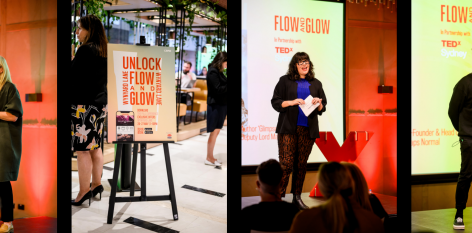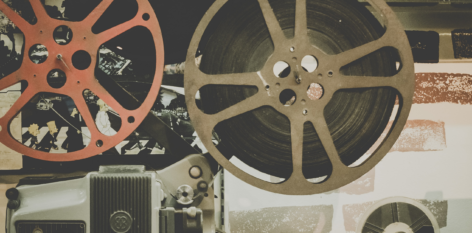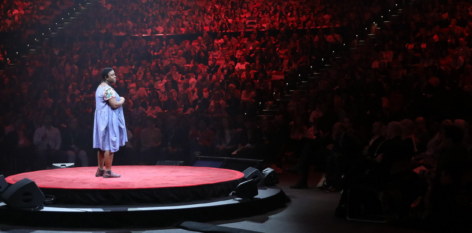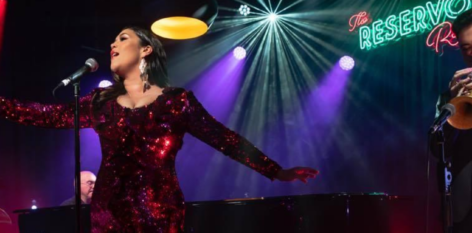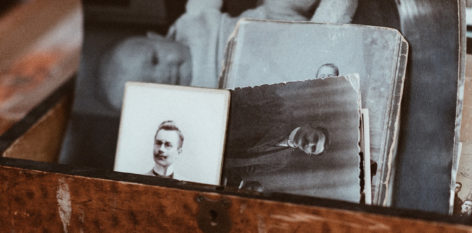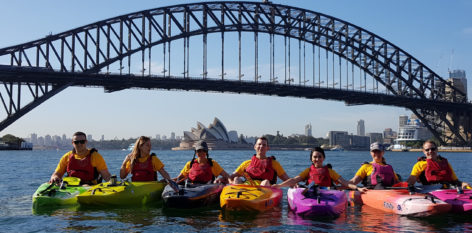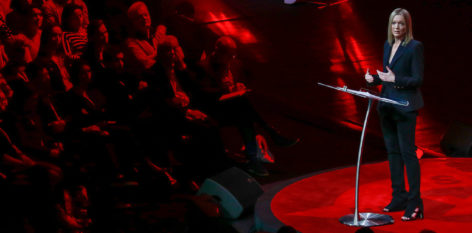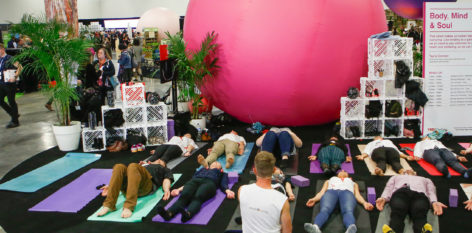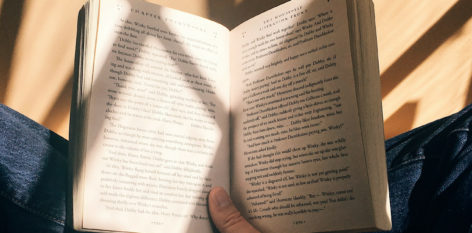What makes a great film for you?
Andrew Flakelar: Like most filmmakers, my feelings about what makes a film great is one that best uses the cinematic devices to tell an amazing story. One that can tease, teach, move, entertain and surprise. Andrew Stanton (in a TED Talk) had said that drama is anticipation mingled with uncertainty. Any good film will keep you engaged and along for the ride from start to finish. A great film is one that can still have that effect on you, 5 years later, 10 years later, 20 years later. These are the classics.
Matt Hearn: A great story that excites in its most simple telling that can be brought to life in the screenplay makes for a great film. And beyond that the film, as the camera sees it must evoke honest and believable central performances; all the emotions, desires and conflicts should take hold of the viewer and stay with them long after the film is over. But there is also an unseen energy that takes hold when creative collaboration works in symmetry, it’s as if the story came effortlessly to life and that’s what I feel when I watch a great film. Despite the endless hurdles faced when making a film all of the elements come together to craft something that is both magical and believable, creating a world that seemingly always existed and always will.
Michaela Skovranova : A great film transports me to another place and teaches me something unexpected – One of my personal favourites from Australia is Undermined: Tales From The Kimberley directed by Nicholas D. Wrathall and In My Blood It Runs directed by Maya Newell.
What films have been most inspiring and why?
Matt Hearn: This is a tricky question as it would change on any given day, and any given mood. The earliest was when I was 7-years old in my PJ’s at the drive-in watching Star Wars with my dad and older brother. It opened my eyes to the power of film and transported me to another world. I often recall the claustrophobic descending dread in Alien. Tarantino’s incredible dialogue, performances and mind-blowing and achingly real scenes in Reservoir Dogs. Jean-Pierre Jeunet’s stylistic and magical real masterpieces like The City of the Lost Children and Delicatessen. There are so many films but the ones that truly inspire, completely immersed and transported me into a story world, and for the length of the film, nothing else existed.
Was there a particular time or event that led you to recognise that filmmaking was to be a part of your life?
Radheya Jegatheva: I was 17 years old when I realised that filmmaking was to be a part of my life. I was in my bedroom one night, huddled around a phone with my parents. We were listening to the live announcements of the Port Shorts Film Festival, happening in Tropical North Queensland, the other side of the country from us. My first ever short film, Journey, had been entered in the festival and they announced it had won the overall festival prize (over an Academy Award Winner’s short film that was also contending!). I was still in high school at the time and I had a hard time believing it was real. But that was when I realised that this part of my life that I had been so passionate about might not be just limited to a hobby, or something I just did on the side. That was the moment when I realised I might be able to pursue this as a career.
Andrew Flakelar: Becoming a Director was the only career I ever seriously considered. Once I got to the age where I had to start thinking about what I was going to do with the rest of my life, I was determined to choose a path that looked like fun. I gravitated towards filmmaking as a creative outlet, but also because I love the idea of dipping into another world for the duration of a project. Every film I’ve made has been an experience in exploring a different corner of the world, either literally or metaphorically, and I am an endlessly intrigued person, fascinated by the levers and pulleys that move peoples’ emotions.
Michaela Skovranova: Upon my graduation from my photography studies in 2009 as the industry continued to shift and change, it became apparent that expanding into filmmaking would be a very beneficial skill to have. From 2012 my work started to involve more filming. A good filmmaker is sensitive to the nuances of the environment they are working in.
It is said that there are only 7 basic plotlines throughout all storytelling – how have you been able to keep your storytelling fresh? What have you done to subvert the process to maintain originality?
Andrew Flakelar: With this film, the originality is inherent in the content. As a volunteer firefighter, I am exposed to sights and sounds that are just not part of people’s everyday lives. You could argue that no one should ever have to see what we have seen. But as a filmmaker, I’m captivated by the unseen, the anticipation of what is just around the corner, or just over the hill. To have been so immersed in a world beyond the safety barriers as communities were impacted by bushfire, originality in the visuals was unavoidable.
But from a narrative standpoint, that was where the challenge really lay. I really didn’t want this film to simply be a highlights reel of fire footage. But to craft a story, I had to open up about the psychological and emotional impacts that the fire season has had on me. This was uncomfortable for me. But it’s really important that the story is there, that it’s solid, that it’s honest. And if that means expressing things about myself that I had previously kept quiet, then so be it. The story is in charge here.
Adrian Hobbs: For me, I think the time restraints on production forced a type of creativity. I had to somehow pull the film together in 3 days whilst preparing the exhibition of drawings which forced me to think on my feet. I was only alerted to the requirement of the film on the Friday before the Monday when the exhibition was to be launched, so I had to think really fast and without concern for any conscious formula. Being an art film it is less concerned by conventions. In short, COVID-19.
Radheya Jegatheva: I love twists and turns and subverting viewers’ expectations. For example, ‘Painting By Numbers’ features The Seven Deadly Sins, some of the most famous artworks in the world and environmental degradation – three seemingly unrelated subjects that somehow come together. The viewer might not be sure what to expect, especially with it being a non-narrative piece. Employing a range of different styles, and abstractifying visual representations with storytelling comprise a significant chunk of my creativity.
We get noticed because of our successes, which we create on the back of our failures. What failures/lessons led you to this place?
Andrew Flakelar:I think it’s about how you frame it. Thomas Edison’s famous retort, “I haven’t failed, I’ve just found 10,000 ways that don’t work” questions the whole notion of what a failure is anyway. Yes, of course there are valuable lessons from failures, but there are also lessons to be learned from successes. You’re always learning when you engage in the creative process, then once a film is done, failures teach you how to dust yourself and get back up. Success teaches us to pull our heads in and not get ahead of ourselves. Everything is temporary – success and failure – the trick is to hang on, enjoy the ride, and take the lessons in whatever form they come into your life.
What do you believe audiences want, and do you think it’s the filmmaker’s role to worry about that?
Adrian Hobbs: I think audiences genuinely want truth and with depth, and absolutely it’s the filmmaker’s role to convey that. But then there are different kinds of films and with different kinds of intentions, so this requires a nuanced response.
Andrew Flakelar: I think ultimately audiences want to be entertained. While this may sound broad, you can have a film that teaches, surprises, moves and audience, but if it doesn’t entertain then you won’t have their attention and any meaning will fall to the floor. It’s all well and good for an artist to make their art with a purity of self-expression, and as much as I consider what we do as an art-form, applying this to filmmaking would make for a lonely career. I am always interested in what an audience wants. Especially for this film, I had several conversations with people about what they were curious about in the world of bushfires and volunteer firefighters. If I can combine my interests with the interests of an audience, then we’re on to a good thing.
Radheya Jegatheva: There’s never a straight answer to this, so generally audiences want to be engaged and entertained, in consideration of the films that they have seen previously. As such, I believe they want to see something new and fresh in some way or another. I think it is a filmmaker’s role to worry about this to a certain extent until it gets in the way of true creative intention. A film should be more than just catering to the audience, and I think filmmakers follow what your instincts say and not let the potential ideas or judgements from the audience to interfere with the creative process.
If there was one thing to make the film industry better, what would it be?
Matt Hearn: In Australia, with feature film specifically, it would be the ability to access more and varied funding routes. We are largely subsidised by Federal and State Film Agency funding, tax offset plus a small number of pre-sales, distribution guarantees and a trickle of private investment. It needs a re-boot to attract new tax-efficient investment options and stimulate more businesses and employment. It has to be worth taking a punt for investors and that would invigorate the industry and require less government support in the long run. There used to be a tax incentive called 10BA that allowed investors a 150% tax concession on their investment in Australia film and when that was around there were a lot more and varied independent films being made. Without something like that or similar, things won’t change. Lots of average films were made during that time but a greater volume resulted in many great ones. Importantly, it kick-started so many amazing filmmakers’ careers and fostered innovation across the industry.
Michaela Skovranova: Diversity and representation. Our world needs diversity – we have an excellent opportunity to bring a different perspective into our industry and create in a way that we have never before.
Adrian Hobbs More support from the government. The present one is killing the industry, and purposely it seems.


